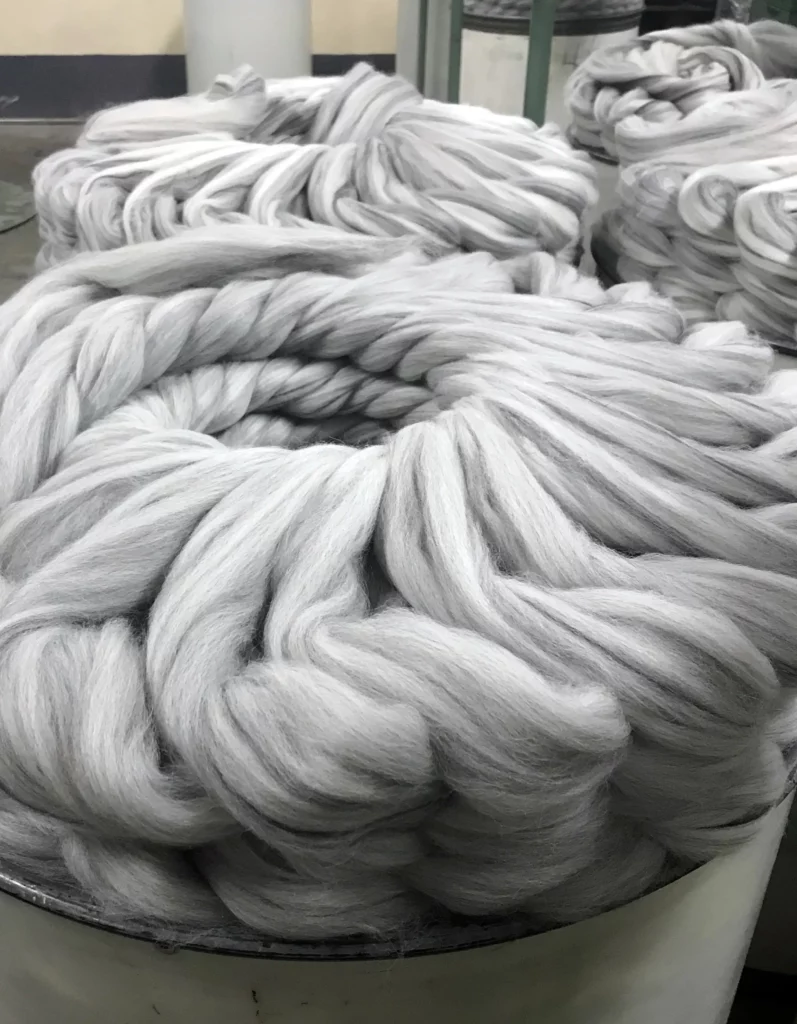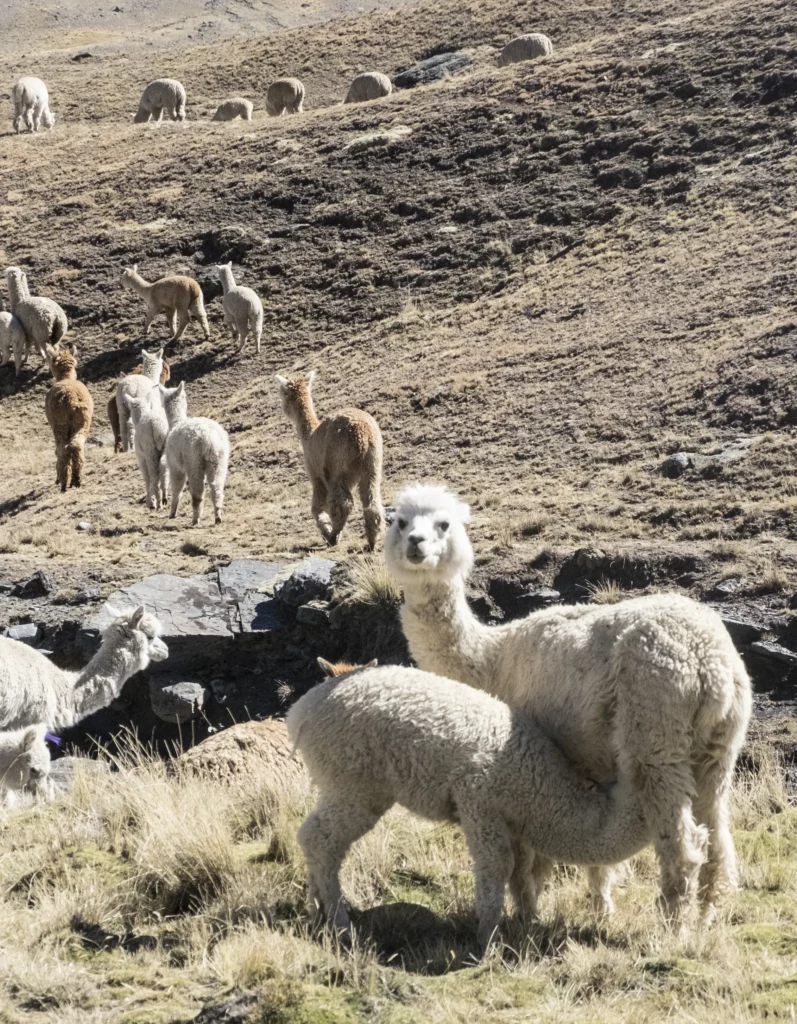Free Deliveries to all European Countries
|
5 years warranty
|
FSC®-certified
Free Deliveries to all European Countries
5 years warranty
FSC®-certified
Words and Images by Form & Refine
Our Aymara textile line is designed in line with the principles of Nordic design tradition and made from 100% of the finest but made from the purest alpaca wool produced by highly skilled craftsmen in Bolivia. This combination results in a simple product of eminent quality.
In our travels around the world, the alpaca from the Bolivian Highlands caught our immediate attention due to the supreme quality of the alpaca fibres. Bolivia is known for it’s proficiency with natural fibres and expertise with alpaca wool that dates back thousands of years.
Our local partner in Bolivia is a cooperative owned by 400 alpaca farmers and knitters. Their skills and knowledge of the material have been passed on from generation to generation since the ancient civilizations of the Andes.
Alpaca as a Material
Our Alpaca fibres are 100% organic and are not made in combination with other wool mixes or synthetic fibres. The fibre is very fine, yet extremely durable and the textiles produced from it last a very long time. The alpaca fibre is not prickly and perfect for sensitive skin. Unlike most other types of wool, it does not contain lanolin – making it 100% allergy friendly.


– A Product of Bolivia
Alpacas have been kept harmoniously as livestock, since the ancient tribes of the Andean highlands first began farming them. The climate in the so-called ‘Altiplano’ yields the perfect conditions for a natural and healthy life for both the alpacas and their farmers who have developed sophisticated skills to produce high quality textiles.
We want to pass on our experience of these traditions, stories and materials to you.
Co-operative Collaboration
Our local partners in Bolivia have formed a co-operative of over 400 alpaca breeders from communities surrounding La Paz. Every three years the alpaca breeders select five presidents that represent and run the company. The cooperative ensures a sustainble collective working environment. When visiting the company, you experience this communal atmosphere where each worker knows their importance and can feel proud of their work.
And they ‘are’ important, everyone from the alpaca breeders who invest and raise the alpacas, the workers that process and convert the raw materials to the knitters who transform the garment into beautiful products. Each person and each step of the labor process contributes to a much larger purpose. We are proud to partner with these people and aim to pass on their stories and work to the world.
“The Fibre of Gods”
The Alpaca fibre is silky soft and superior in its abilities. It does not retain water and effectively resists solar radiation. It has a thermal insulating effect making it warm and comfortable while still being lightweight, almost ethereal; No wonder the Incas in Bolivia denoted it “The Fibre of Gods”.
When spun and woven carefully, these qualities make it perfect for durable, long-lasting textiles. We are comitted to retaining the Alpaca fibres natural characteristics and a do not expose them to toxic ingredients during their processing. The fleece is divided into four qualities, ranging from Baby Alpaca (fleece from the underside of the neck or from the very first shearing of an alpaca), Superfine, Adult and Coarse. We use Baby Alpaca and Super Fine Alpaca for our designs.
Refining the raw Material
Every year around February the alpaca breeders in the Bolivian Highlands cut their huacaya alpacas. This fine fleece is brought to the warehouse. Here, the fibers are graded and sorted by hand for finesse and color. Alpaca fleece comes in sixteen natural shades, from white to black. A beautiful color pallet that we like to make full use of in our design, both in the respect for the natural colors and with respect for the nature. The grading process is mainly done by women whose skills and knowledge of the materials have been passed on from generation to generation. After this grading the fibres are cleaned, combed and made to ball tops of yarn. This is done by machines through several processes.
The fine alpaca yarn is then woven to plaids, pillow cases and other Form & Refine products. Every knitted item goes through a piece by piece quality control and is carefully finished by hand.
Forming the Material
A close collaboration and understanding of our partners is important. By taking these extra steps we are able to treat the material with the respect it deserves and better understand the process of harvesting it. These parameters are taken into the design process where there is a meeting between the rich and colourful Bolivian culture and Nordic minimalistic design.
We strive to create products that emphasise and respect the long-lasting quality of the Alpaca fibre. We do this by working to a simple and honest design with a dedication that would make our partners in Bolivia proud.